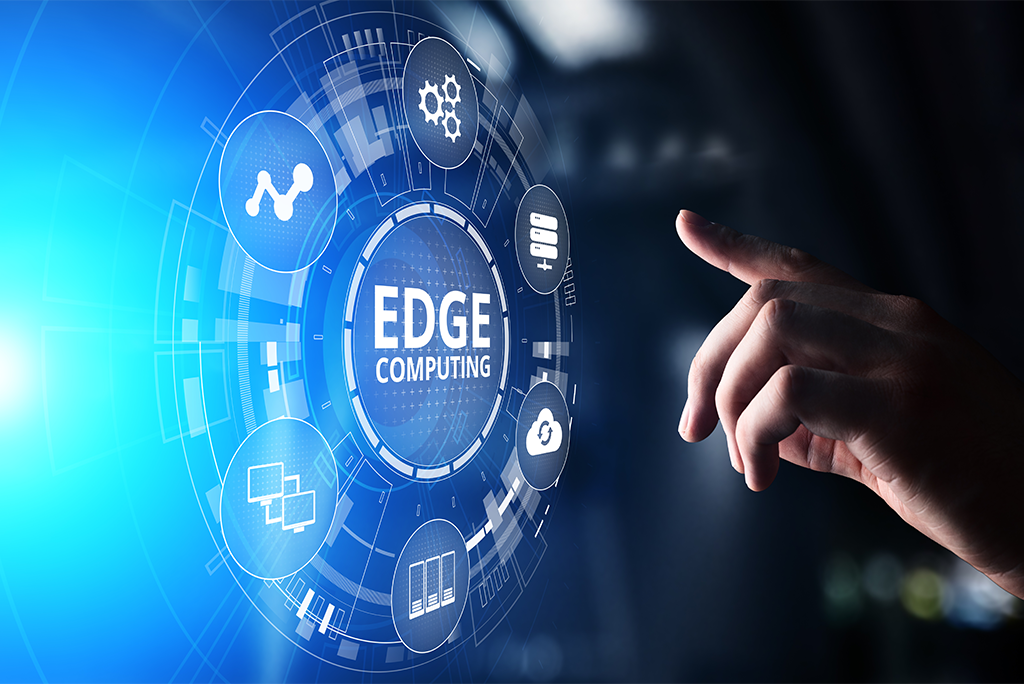
What is Edge Computing and Why It Matters to Enterprises?
By Udit Agarwal

Edge computing is revolutionizing how enterprises process, store, and analyze data, offering a decentralized approach that brings computing resources closer to the point of data generation. In this article, we explore computing and why it holds significance for enterprises across various industries.
Definition of Edge Computing
Edge computing refers to a distributed computing paradigm where data processing and storage are performed closer to the source of data generation, typically at or near the network. Unlike traditional centralized cloud computing, which relies on remote data centers, computing brings computational resources closer to end-users and IoT devices, enabling real-time data processing, low-latency responses, and improved application performance.
Key Components and Technologies
Edge computing ecosystems consist of various components and technologies that enable the deployment and management of computing infrastructure. These include nodes, which serve as localized computing hubs, devices such as IoT sensors and gateways, edge servers, edge data centers, and computing platforms and software frameworks that facilitate application development and management at the edge.
Benefits to Enterprises
Low Latency and Real-Time Responsiveness: By processing data locally at the edge, enterprises can minimize latency and achieve real-time responsiveness for critical applications and services. This is particularly important for use cases such as industrial automation, autonomous vehicles, and augmented reality/virtual reality (AR/VR) experiences, where even milliseconds of delay can have significant implications.
Bandwidth Optimization:
Edge computing reduces the need to transmit large volumes of data to centralized cloud servers for processing, leading to more efficient use of network bandwidth. It is especially advantageous for applications that generate massive amounts of data, such as video surveillance, sensor networks, and connected vehicles, as it helps alleviate network congestion and reduce data transfer costs.
Improved Reliability and Resilience:
Edge computing enhances the reliability and resilience of enterprise systems by lowering dependence on centralized data centers and network connectivity. By distributing computing resources across multiple nodes, enterprises can ensure continuous operation. And mitigate the impact of network outages or disruptions, enhancing business continuity and disaster recovery capabilities.
Also Read: The Evolution of Application Development Support: A Comprehensive Guide
Data Privacy and Security:
Edge computing enables enterprises to maintain greater control over their data by processing sensitive information locally without transmitting it to external cloud servers. It helps address data privacy, regulatory compliance, and security concerns, particularly in critical sectors like healthcare, finance, and government, where data sovereignty is paramount.

Scalability and Agility:
Edge computing architectures are inherently scalable and agile, allowing enterprises to dynamically deploy. And scale computing resources in response to changing demands. This flexibility enables organizations to adapt quickly to evolving business requirements. Support new use cases, and seize opportunities for innovation and growth.
Use Cases and Applications
Edge computing finds application across a wide range of industries and use cases, including:
- Industrial IoT (IIoT) and Manufacturing: Predictive maintenance, process optimization, and real-time industrial equipment and machinery monitoring.
- Smart Cities and Infrastructure: It encompasses traffic management, public safety, environmental monitoring, and intelligent grid management.
- Retail and Customer Experience: Personalized marketing, inventory management, and intelligent retail analytics.
- Healthcare and Telemedicine: Remote patient monitoring, telehealth services, and medical imaging analysis.
Key takeaway
In conclusion, edge computing represents a paradigm shift in how enterprises process and manage data, offering low latency. Bandwidth optimization, improved reliability, data privacy, scalability, and agility. By leveraging computing technologies, enterprises can unlock new opportunities for innovation. Enhance operational efficiency, and deliver superior experiences to customers and end-users in the digital age. As the adoption of computing continues. To accelerate, enterprises must embrace this transformative technology to stay competitive and drive future growth.